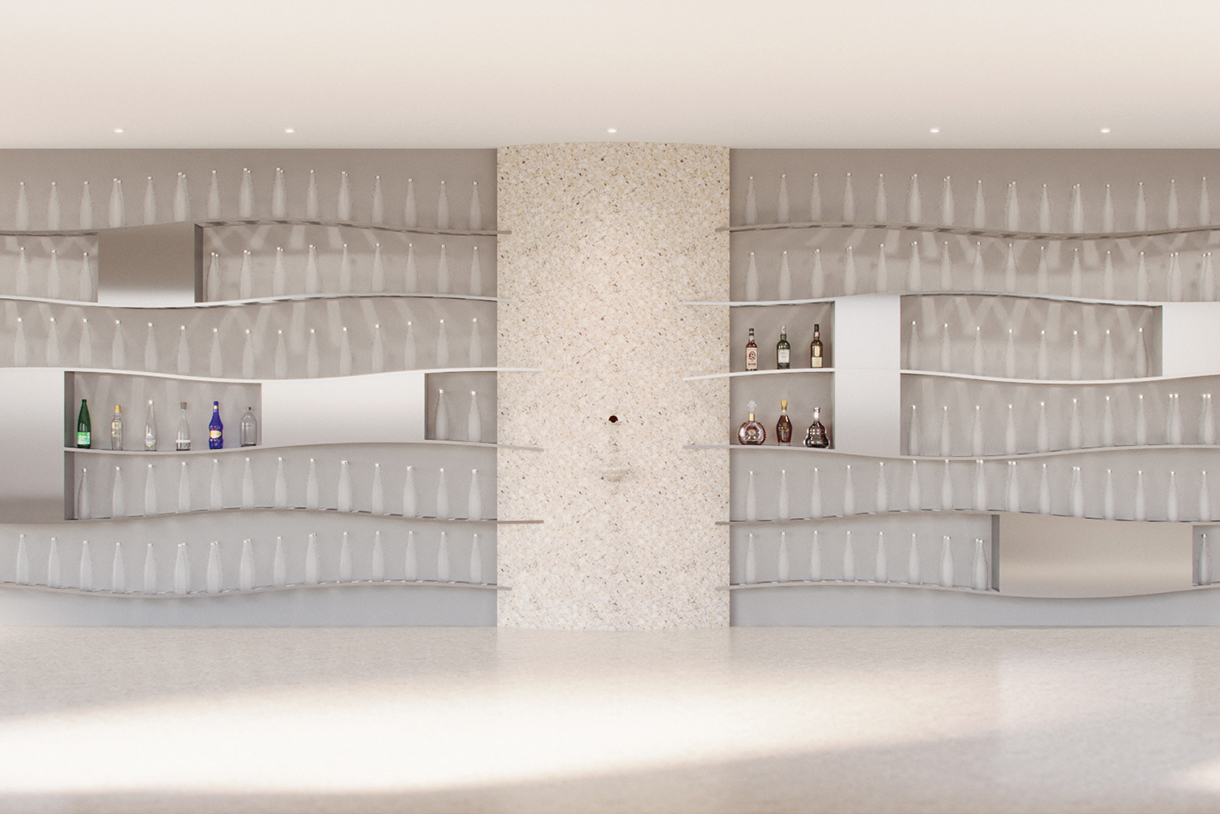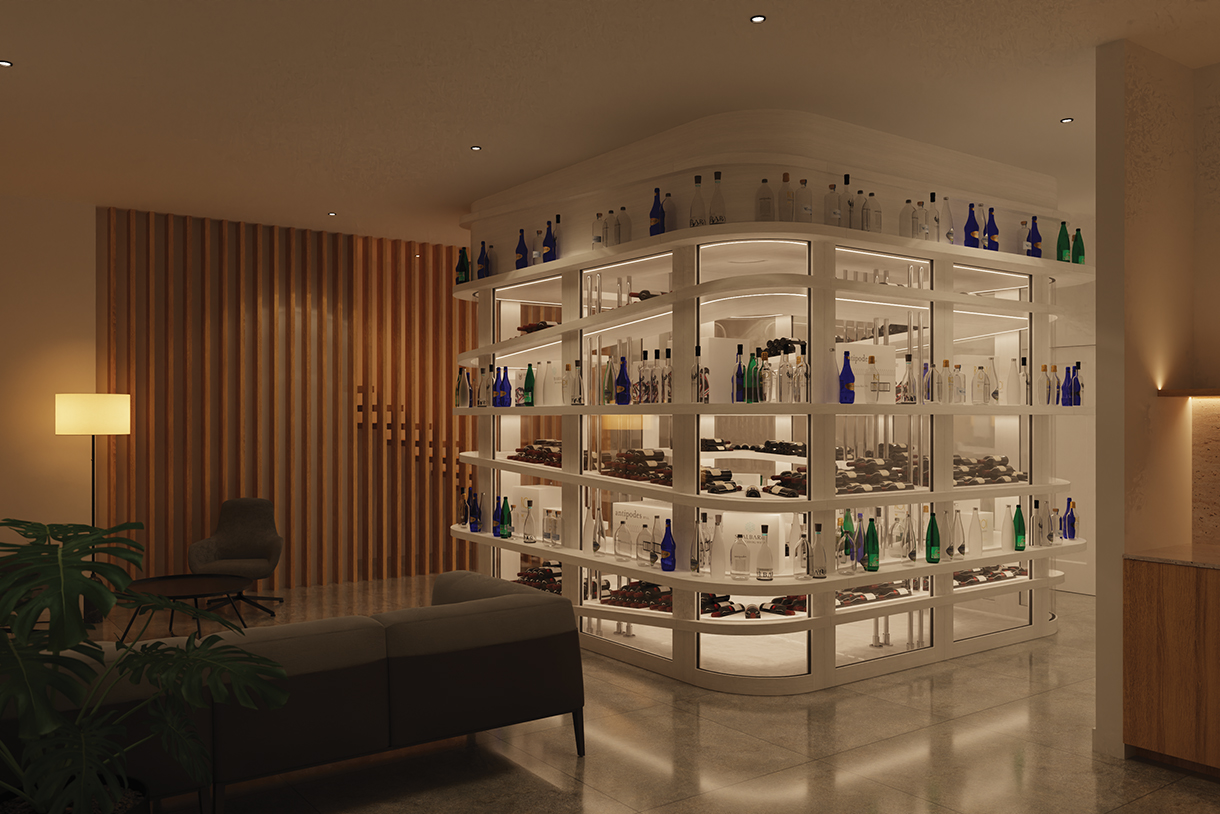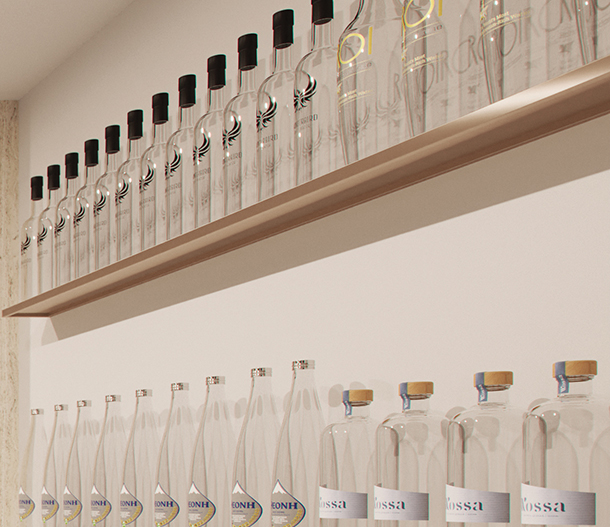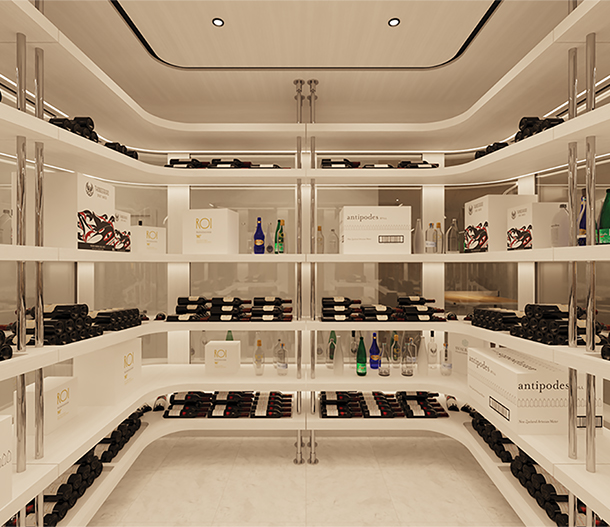
Design
High-End Hydration and Boutique Water Cellars
by Jorge S. Arango

The Rise of Luxury Water Cellars
“I can go to a dinner party where everyone is talking about their 1945 Bordeaux, but I bring a bottle of water that’s 4,000 years old, and guess what they remember more?” says Michael Mascha of Texas-based Fine Waters. Four-thousand-year-old water has been thawed from chunks of glaciers that break off and would have melted in the ocean, except that it’s bottled by small-batch producers who take pride in bringing a pristinely natural product to those whose palates appreciate it. “What creates the price point,” he says, “is where the water originates. Good water comes from remote places.”Mascha works with restaurateurs on their water offerings and, in 2008, established the Fine Water Society, which convenes about 100 global bottlers each year who retail waters priced from $2 a bottle to hundreds of dollars. Those who bottle it consider themselves stewards of those sources and are not in it for the money. They are protecting and preserving their sources instead of draining them, as some industrial bottlers have begun to do.

Fine Waters offers a water sommelier certification, which is how Mascha met Jonathan Primeau, founder of Montreal-based CellArt. Primeau has created ultra-luxurious, custom wine cellars for years and has imbibed a lot of fabulous wines. But, like Mascha and many others, “I was starting to reduce my consumption of alcohol to live a healthier lifestyle.” He happened upon Fine Waters’ sommelier program and became one of Mascha’s most eager students.
The two teamed up to educate the many oenophiles Primeau has serviced over the years, now building them water cellars, often adjacent to their wine cellars. “A wine cellar is very exclusive,” Primeau says. “It’s locked and no one can get to it. The water space is inclusive, open to all, including children.” Storing fine waters shares many of the same requirements: no direct UV light, cool temperatures, low vibration.
The two teamed up to educate the many oenophiles Primeau has serviced over the years, now building them water cellars, often adjacent to their wine cellars. “A wine cellar is very exclusive,” Primeau says. “It’s locked and no one can get to it. The water space is inclusive, open to all, including children.” Storing fine waters shares many of the same requirements: no direct UV light, cool temperatures, low vibration.


Primeau and Mascha are ahead of a tsunami that is gaining momentum. It is their mission to teach people what really good natural water is. For instance, it may surprise people to discover that most of the water we buy is not natural; it’s tap water that is filtered and, often, infused with minerals it doesn’t naturally contain. (The Fine Waters website is a fascinating repository for water history.) True connoisseurs learn to distinguish between these waters and artesian, spring, and glacial waters. finewaters.com; cellart.com
Photo credits: Courtesy CELLART
Photo credits: Courtesy CELLART




